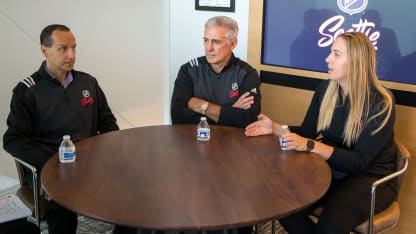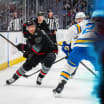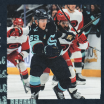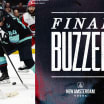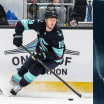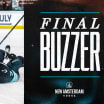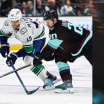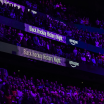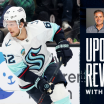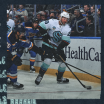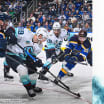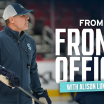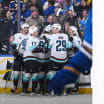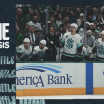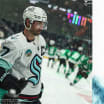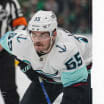Chu offers an example. A hockey fan sees a spectacular spin move for a goal by a forward. It that a repeatable play or unique act? Without the puck and player tracking, that answer is hard to provide. By the time NHL Seattle takes to the regular-season ice in October 2021, Chu and colleagues will have a data-packed answer to any number of repeatable plays from NHL scorers.
Another example: Early video tracking work has uncovered "zone entries" are a relevant statistics as players skate into the opponent's zone to create scoring chances. Chu says there are all sorts of variables that are not currently known or easily identifiable about a zone entry, such as strength/weakness of the other team's defenders, whether the opponent's formation is "crowding the blue line" (entry point) and who is joining the player entering the zone from his own team. Player tracking will account for every player on the ice, giving the quantitative analysts more data and, in turn, more answers when Francis, Olczyk and others pose questions of proof.
"One of the most exciting things about Danny is he will be the first of many for us," says Mandrycky. "We will build an infrastructure with the expectation of working together as a culture. Ron has been really vocal about that. And Tod right from the start said he wants our analytics people to be involved and listened to. As a research and development team, we will have open conversations [across hockey operations]."
Mandrycky says Chu will be helping out on the pro scouting side from Day 1, working with the five new scouts hired this fall, along with Francis, Mandrycky and assistant general manager Ricky Olczyk. The goal is identifying players who might be available for the 2021 NHL Expansion Draft or free agency beginning July 1, 2021. She says there will be times when the quantitative analysts and scouts agree on player evaluations and other instances when there is a difference of opinions.
"That's when we have the fun conversations," Mandrycky says.


